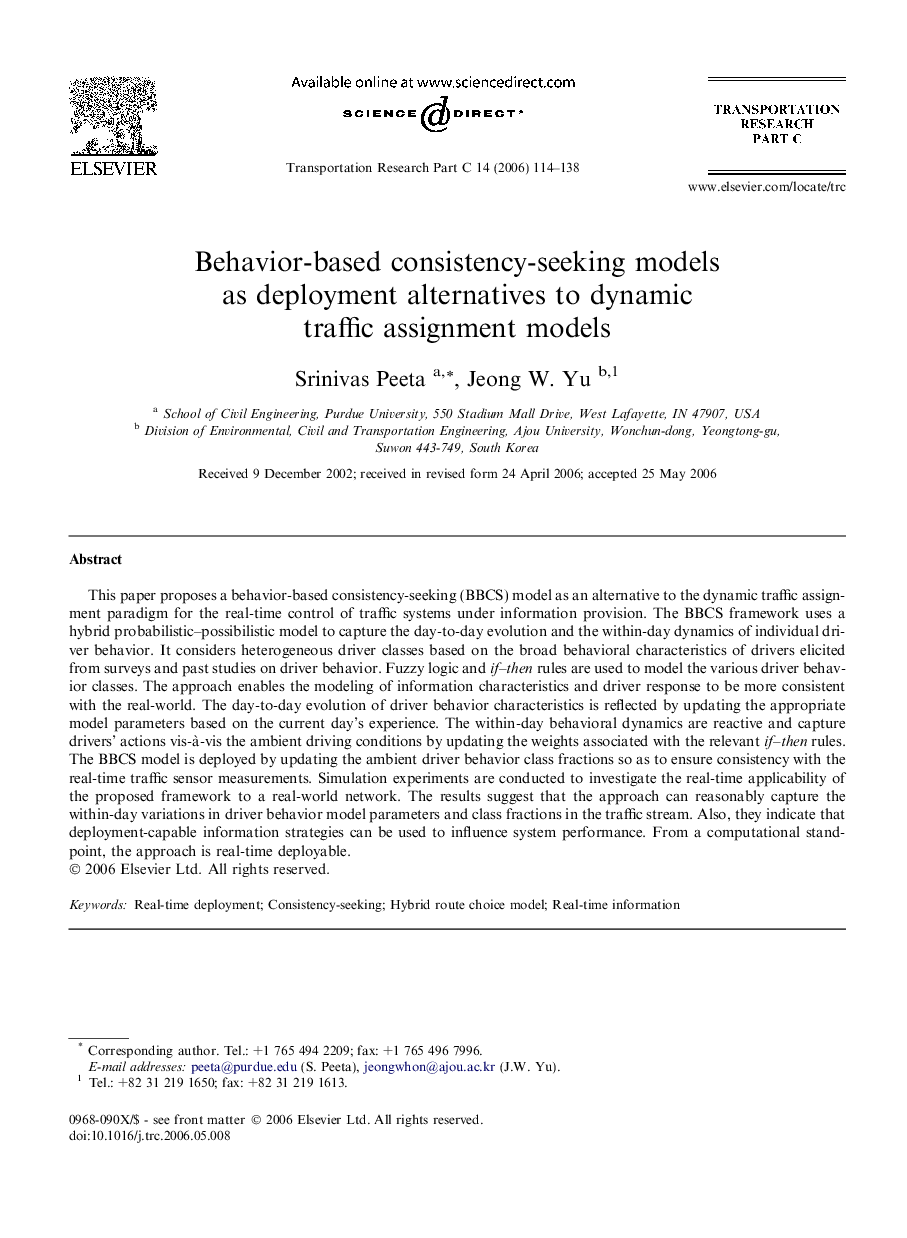| Article ID | Journal | Published Year | Pages | File Type |
|---|---|---|---|---|
| 526706 | Transportation Research Part C: Emerging Technologies | 2006 | 25 Pages |
This paper proposes a behavior-based consistency-seeking (BBCS) model as an alternative to the dynamic traffic assignment paradigm for the real-time control of traffic systems under information provision. The BBCS framework uses a hybrid probabilistic–possibilistic model to capture the day-to-day evolution and the within-day dynamics of individual driver behavior. It considers heterogeneous driver classes based on the broad behavioral characteristics of drivers elicited from surveys and past studies on driver behavior. Fuzzy logic and if–then rules are used to model the various driver behavior classes. The approach enables the modeling of information characteristics and driver response to be more consistent with the real-world. The day-to-day evolution of driver behavior characteristics is reflected by updating the appropriate model parameters based on the current day’s experience. The within-day behavioral dynamics are reactive and capture drivers’ actions vis-à-vis the ambient driving conditions by updating the weights associated with the relevant if–then rules. The BBCS model is deployed by updating the ambient driver behavior class fractions so as to ensure consistency with the real-time traffic sensor measurements. Simulation experiments are conducted to investigate the real-time applicability of the proposed framework to a real-world network. The results suggest that the approach can reasonably capture the within-day variations in driver behavior model parameters and class fractions in the traffic stream. Also, they indicate that deployment-capable information strategies can be used to influence system performance. From a computational standpoint, the approach is real-time deployable.
